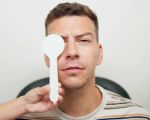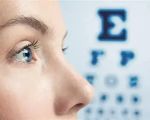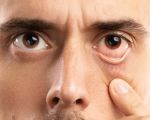- 1 - Understanding Pollen and Eye Allergies During Allergy Season
- 2 - Protective Measures to Shield Your Eyes from Pollen Outdoors
- 3 - Lifestyle and Environmental Adjustments for Eye Allergy Relief
- 4 - Professional Advice and Treatment Options for Eye Allergy Sufferers
- 5 - Real-Life Experiences and Trusted Solutions for Eye Allergy Protection
1. Understanding Pollen and Eye Allergies During Allergy Season
Every spring and fall, many people experience discomfort caused by pollen in the air, a common allergen that triggers eye irritation. The eyes can become red, itchy, watery, and swollen, making outdoor activities less enjoyable. Understanding what pollen is and how it affects your eyes is the first step in protecting yourself during allergy season.
Pollen consists of tiny grains released by trees, grasses, and weeds for reproduction. When inhaled or when they come into contact with sensitive tissues like the eyes, these grains can spark an allergic reaction. For example, Anna, a long-time allergy sufferer, found her symptoms worsening during outdoor hikes in spring until she learned how to effectively protect her eyes from pollen.
This awareness helps you recognize the signs of pollen-induced eye allergies and prepares you to take proactive measures to minimize exposure.
2. Protective Measures to Shield Your Eyes from Pollen Outdoors
2.1 Wearing Protective Eyewear
One of the most effective ways to protect eyes from pollen during allergy season outdoors is by wearing sunglasses or wraparound glasses. These create a physical barrier that reduces pollen contact with your eyes. Sunglasses with UV protection add the bonus of shielding from harmful sun rays, which can exacerbate eye irritation.
Mark, an avid cyclist, shared how switching to sports-specific wraparound sunglasses significantly reduced his eye redness and watering during spring rides, allowing him to enjoy the outdoors without constant discomfort.
2.2 Using Artificial Tears and Eye Drops
Lubricating eye drops can help flush out pollen and soothe irritated eyes. It is important to choose preservative-free artificial tears for frequent use to avoid further irritation. Some medicated drops prescribed by eye care professionals can also reduce allergic inflammation.
2.3 Avoiding Peak Pollen Times
Pollen levels tend to be highest early in the morning and on windy days. Planning outdoor activities outside of these times can minimize eye exposure. Checking local pollen forecasts can be a practical step to prepare your day accordingly.
3. Lifestyle and Environmental Adjustments for Eye Allergy Relief
3.1 Maintaining Cleanliness
After spending time outdoors, washing your face and rinsing your eyes gently with clean water helps remove pollen residues. Avoid rubbing your eyes, which can worsen irritation.
3.2 Using Hats and Protective Clothing
Wearing wide-brimmed hats or caps can reduce the amount of pollen that reaches your eyes. Combining this with sunglasses enhances protection during prolonged outdoor exposure.
3.3 Creating Allergy-Safe Zones
At home, keeping windows closed during high pollen days and using air purifiers can reduce indoor pollen levels, indirectly helping your eyes recover after outdoor exposure.
4. Professional Advice and Treatment Options for Eye Allergy Sufferers
4.1 Consulting Eye Care Specialists
If pollen-induced eye allergies significantly impact your quality of life, consulting an eye care professional is crucial. Specialists can diagnose specific allergies and recommend tailored treatments such as prescription eye drops or allergy shots.
One patient at Eye Docs reported remarkable relief after receiving customized allergy management advice, which included a combination of preventive eyewear and medicated eye drops.
4.2 Emerging Treatments and Innovations
Recent advancements include anti-inflammatory eye gels and novel antihistamine formulations that provide longer-lasting relief. Staying informed about these options can empower you to manage allergy season more effectively.
5. Real-Life Experiences and Trusted Solutions for Eye Allergy Protection
5.1 Community Insights and Popular Remedies
Across social media, many allergy sufferers share success stories about protecting their eyes with simple yet effective strategies like consistent eyewear use and timely eye drop application. These shared experiences offer encouragement and practical tips.
5.2 Trusted Product Recommendations from Eye Care Experts
For those seeking reliable products and professional services to protect eyes from pollen during allergy season outdoors, Eye Docs provides expertly vetted selections. From high-quality protective glasses to soothing eye care products, their offerings cater specifically to allergy-related eye care needs.
By understanding how to protect eyes from pollen and incorporating these practical measures, you can enjoy the outdoors comfortably throughout allergy season.








